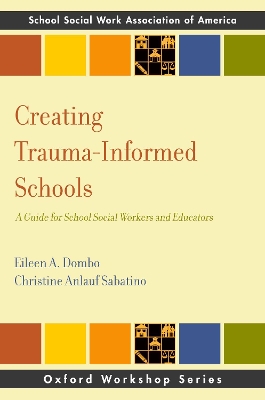SSWAA Workshop
2 total works
School social workers engage in different forms of consultation on a daily basis, yet they rarely think about or describe this work as 'consultation.' Further, school social work practice research finds that consultation is among the most frequently performed practice tasks, yet consultation is rarely defined in school social work literature or research.
This book adapts the consultation theory and practice framework put forward by June Gallessich (1982) that defines consultation in specific terms and proposes that there are six models of consultation. These models are organizational consultation, program consultation, education and training consultation, mental health consultation, behavioral consultation, and clinical case consultation. The models are differentiated according to their problem focus, outcome goal, intervention methods, change
processes, power base, and value system.
School social work consultation services are an important pathway to help school systems fulfill their educational mission and to help school personnel become more effective in their professional work. It is consistent with current trends in educational policy that call upon school social workers to take a multisystem approach to addressing school needs on a school-wide, class-wide, or individual level.
The overarching goal of the book is to provide school social workers with the knowledge, skill, and confidence to implement consultation services. Consultation is a powerful method to 'realize the promise of the whole-school approach' and to help homes, schools, and communities foster school success and student well-being.
This book adapts the consultation theory and practice framework put forward by June Gallessich (1982) that defines consultation in specific terms and proposes that there are six models of consultation. These models are organizational consultation, program consultation, education and training consultation, mental health consultation, behavioral consultation, and clinical case consultation. The models are differentiated according to their problem focus, outcome goal, intervention methods, change
processes, power base, and value system.
School social work consultation services are an important pathway to help school systems fulfill their educational mission and to help school personnel become more effective in their professional work. It is consistent with current trends in educational policy that call upon school social workers to take a multisystem approach to addressing school needs on a school-wide, class-wide, or individual level.
The overarching goal of the book is to provide school social workers with the knowledge, skill, and confidence to implement consultation services. Consultation is a powerful method to 'realize the promise of the whole-school approach' and to help homes, schools, and communities foster school success and student well-being.
Creating Trauma-Informed Schools
by Eileen A. Dombo and Christine Anlauf Sabatino
Published 28 February 2019
Children in all educational levels are vulnerable to abuse, neglect, bullying, violence in their homes and neighborhoods, and other traumatic life events; research shows that upwards of 70% of children in schools report experiencing at least one traumatic event before age 16. Though school social workers are on the front lines of service delivery through their work with children who face social and emotional struggles in the pursuit of education, there are scant
resources to assist them in the creation of trauma-informed schools. This book presents an overview of the impact of trauma on children and adolescents, as well as interventions for direct practice and collaboration with teachers, families, and communities. Social work practitioners and students will
learn distinct examples of how to implement the ten principles of trauma-informed services in their schools; provide students with trauma-informed care that is grounded in the principles of safety, connection, and emotional regulation; and develop beneficial skills for self-care in their work.
resources to assist them in the creation of trauma-informed schools. This book presents an overview of the impact of trauma on children and adolescents, as well as interventions for direct practice and collaboration with teachers, families, and communities. Social work practitioners and students will
learn distinct examples of how to implement the ten principles of trauma-informed services in their schools; provide students with trauma-informed care that is grounded in the principles of safety, connection, and emotional regulation; and develop beneficial skills for self-care in their work.

